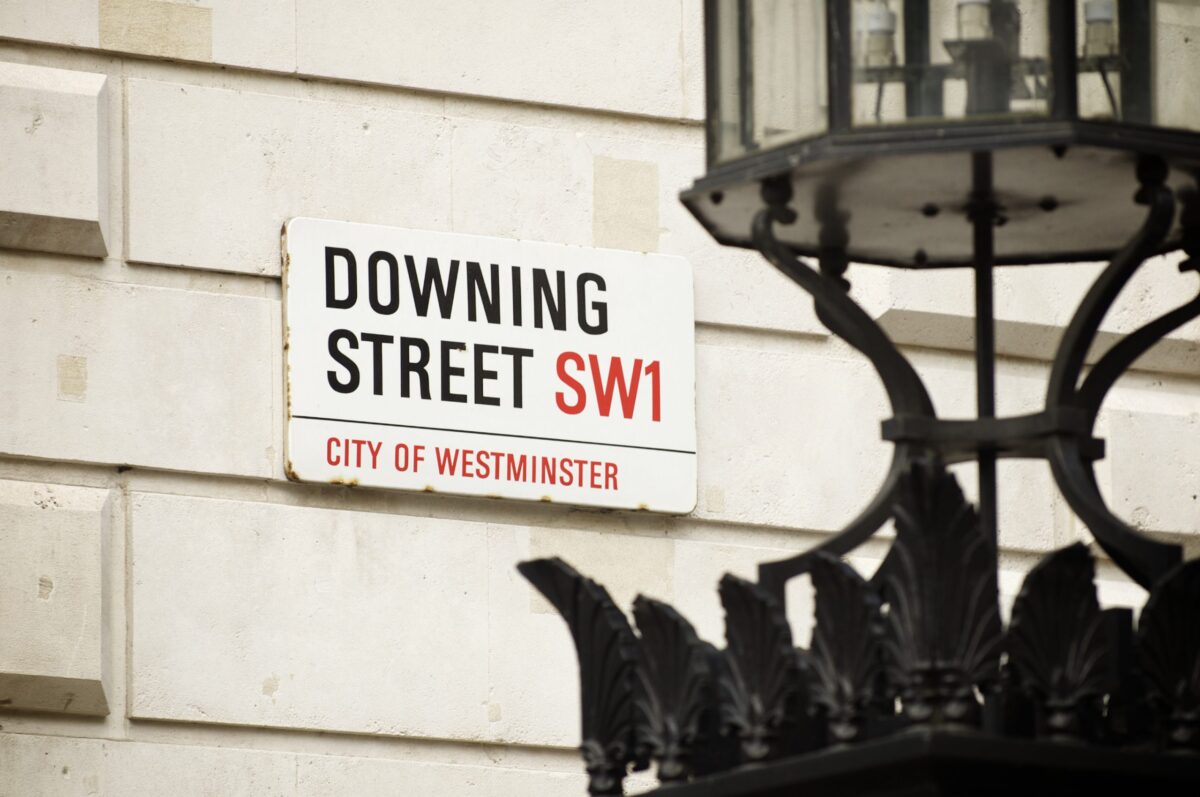In another landmark day in Downing Street, there can’t have been many who were surprised that PM Liz Truss has had to tender her resignation following an increasingly disastrous period of government which has undermined the reputation and economy of the UK.
When there are Twitter memes asking whether a UK Prime Minister will be outlived in post by a Tesco’s lettuce, it’s clear the direction that things are heading. And in this instance the lettuce has won.
But what are investment experts saying about PM Liz Truss’ resignation today – and what do they expect in the days to come as the party looks to appoint a new leader by Friday, 28th October? Here are just some of the views that experts are expressing following today’s announcement:
George Lagarias, Chief Economist at Mazars warns that there may be volatility ahead as he comments: “The market volatility following the mini-budget and Ms Truss’s historic resignation should not be misinterpreted in the parochial context of the Conservative Party convulsions. We should look at the bigger picture, and the larger question, of whether Brexit Britain can deliver on its promises to both the electorate and its key economic stakeholders in a financially illiquid environment? Or is a wider course correction required to restore growth?
“Markets may initially have reacted positively to Ms Truss’s resignation, but volatility should be expected to continue until the country is again on a sound footing.”
Robert Alster, Chief Investment Officer at Close Brothers Asset Management, comments:
“The impact on markets of Liz Truss’ resignation over the short term will all depend on the fiscal stance of her successor, who they appoint as Chancellor, and how both these events play out in the mini budget at the end of the month. Markets are looking for a more balanced budget and more political stability for the UK, and sterling is rising in the hope that the new Prime Minister will provide both.”
Susannah Streeter, senior investment and markets analyst, Hargreaves Lansdown, also sees plenty more uncertainty ahead as she comments: ‘’First her policies went up in flames, then her brief career as Prime Minister. The great political gamble of Liz Truss has spectacularly backfired but not before wreaking significant damage to the UK economy. It will take considerable time before the risk premium attached to UK assets fades away, following the financial nervous breakdown which followed the mini-budget.
With a political implosion seemingly imminent, and expectations rising that Liz Truss’ minutes in power were numbered, the pound crept up in value, heading back towards $1.13. As she gave her resignation statement, it largely held onto gains. Sterling is highly sensitive to economic policy uncertainty and even though the ship Britannia will still be left largely rudderless, with a successor still to be chosen, as far as investors are concerned, the future is marginally brighter without her in charge. Ten-year gilt yields eased further today, as speculation soared about her resignation, a sign of tacit approval from the bond vigilantes who punished the UK by deserting its government’s debt as worries raced up about fiscal responsibility. However, on the equity markets, news of Truss quitting was met with another bout of nervousness, as political uncertainty conspired with worries about the impact of recession.
With the third Prime Minister in just a year expected to be announced by the end of the month, the UK will still be viewed in financial markets as politically unstable. What investors crave is more steadiness and reliability but until they know who will take charge and lead an economic recovery, that stability still remains highly elusive which means that neither sterling nor stocks are likely to make any big strides of progress.’’
Stuart Clark, portfolio manager at Quilter Investors describes the outlook as ‘challenging’ as he comments: “While Liz Truss’ resignation can draw a line under the unsettling policies, U-turns and shambolic operation of the latest government, there will, rightly so, be calls for a fresh election in order to validate the future direction of U.K. government policy.
“A rushed process to elect a new leader and proceed with the Autumn statement will not allay concerns and anything short of a fresh mandate is unlikely to assuage international concerns about the stability of the U.K. government. This unfortunately will continue to act as a further headwind to unleashing the opportunities that exist within the economy and stock market. The UK equity market has been beaten up and could be considered attractive for investors at current valuations. However, with political risk becoming further embedded into the system, investors are going to have to wait before it becomes viable once again.
“One silver lining we are seeing is the gilt market and sterling reacting positively to Truss’ departure. This, coupled with the Deputy Governor of the Bank of England’s comment that the bank may not raise rates as high as the market expected, does provide a steadying feeling following the volatility of the last few weeks. However, fiscal policy is still very much up in the air, and with inflation continuing to ravage consumers’ incomes, the economic picture still looks challenging and will for some time, regardless of who sits in No.10.”
Commenting on Sterling, Gilts and equity markets’ reaction to Liz Truss’ resignation as PM, Dan Boardman-Weston, CEO and Chief Investment Officer at BRI Wealth Management at BRI Wealth Management, said: “The resignation of Liz Truss marks the end of a pretty shambolic period of government. The country and markets need certainty, stability and confidence during these highly uncertain times. Hopefully the conservative party can coalesce around a unifying candidate and government can get back to focussing on how to navigate the country through these turbulent times. Sterling, Gilts and equity markets have all fallen following the announcement whilst it remains unclear who will be the next Prime Minister. Hopefully once the runners and riders are known, markets will react more favourably and we can move into a period of greater political and economic stability.”





